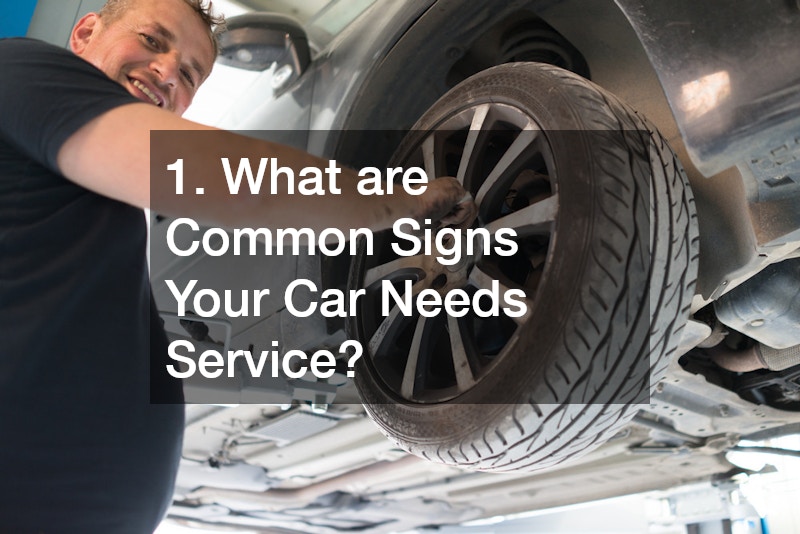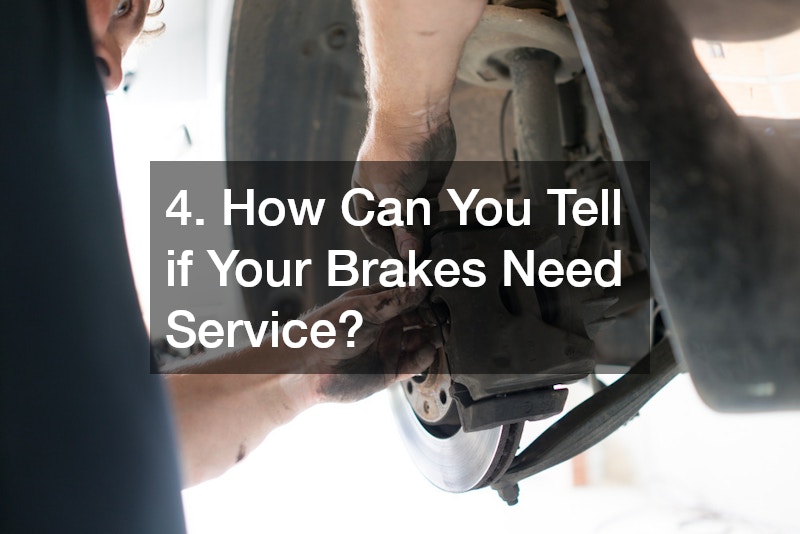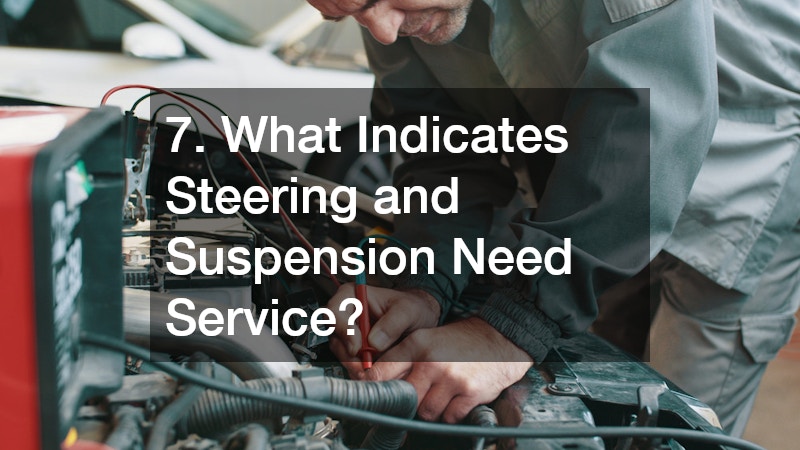Understanding when your car needs service is crucial for maintaining its performance and longevity. Many car owners overlook the importance of timely servicing, which can lead to costly repairs and diminished vehicle reliability. This guide will help you identify common signs that indicate your car requires professional attention, ensuring it remains in optimal condition for years to come.
Regular maintenance is vital not only for the safety of the driver but also for the broader purpose of vehicle efficiency. Knowing when your car needs service can prevent minor issues from evolving into major problems, thus extending the lifespan of your vehicle. By becoming familiar with the warning signs, you can act swiftly to secure your car’s health and your peace of mind.
Whether you’re a new car owner or have years of experience, this detailed guide aims to equip you with the necessary knowledge to recognize when your car needs service. Through understanding these common signs and taking action when needed, you will maintain the smooth operation of your vehicle and its value over time.
1. What are Common Signs Your Car Needs Service?

There are several signs that can indicate when a car needs service. It could be as simple as old paint needing a new ceramic coating. Unusual noises, vibrations, or a difference in performance are typical indicators that something may be amiss. For example, reduced engine power or a drop in fuel efficiency can suggest engine trouble that needs immediate attention.
Another indicator that your vehicle needs service is the presence of dashboard warning lights. Ignoring the check engine light or other alerts can lead to more serious issues over time. Regular diagnostic checks can help ensure that these alerts are addressed promptly, avoiding unnecessary wear and potential hazards.
Additionally, visible signs such as smoke from the exhaust, fluid leaks, or excessive vibrations can point to a problem that warrants a visit to a truck repair company or similar service provider. These visible signs are often the vehicle’s way of signaling that it needs service to prevent further complications.
2. How Often Should Your Car Be Serviced?
The frequency with which a car needs service depends on several factors, including the vehicle’s age, make, model, and driving conditions. Most manufacturers recommend servicing every 12,000 miles or every 12 months, but it’s essential to consult your vehicle’s manual for specific guidance. Regular service intervals help in maintaining optimal vehicle performance and efficiency.
In addition to regular servicing, other periodic checks like diy truck wrap checks can also keep your vehicle looking aesthetically pleasing while protecting its paintwork. Routine inspections of vehicle components such as brakes, tires, and fluids ensure everything is in top working condition. These preventative measures not only prolong your car’s life but also contribute to its safe operation.
Vehicles used for heavy-duty purposes or in harsh environments may need more frequent servicing. Consulting professionals at a transmission shop or local diesel repair services can provide tailored advice and help schedule services based on specific vehicle needs. This proactive approach helps in identifying potential issues before they escalate, ensuring a safer and more reliable driving experience.
3. What Sounds Indicate a Car Needs Service?
Distinctive sounds like squealing or grinding often indicate that a car needs service. For instance, squealing when applying brakes can suggest worn brake pads, while grinding noises might indicate issues with the transmission or other mechanical failures. These sounds often signal that immediate attention is required to avoid potentially dangerous situations.
Rattling noises from under the hood could also be a warning sign. They may indicate loose parts or engine troubles that need to be inspected by a truck repair company or automotive professional. Ignoring such sounds might lead to extensive damage and costly repairs, reinforcing the importance of paying attention when your vehicle makes unusual noises.
Pinging or knocking noises coming from the engine can also be alarming, often hinting at issues with the fuel mixture or engine timing. This is a clear indicator that your vehicle needs service from an experienced mechanic. Wherever you hear unusual sounds, it’s always wise to seek timely professional advice to preserve the integrity and functionality of your car.
4. How Can You Tell if Your Brakes Need Service?

Brakes are one of the most critical safety components in a vehicle, and knowing when they need service is key to safe driving. A soft or spongy brake pedal is an obvious indication that your brakes need assessment. This sensation can signify air in the brake lines or a problem with the master cylinder that requires immediate attention through honda repair or professional mechanics.
Another sign that your brakes need service is the presence of vibrations or pulsations when braking. This can be a manifestation of warped rotors or uneven brake wear, both of which necessitate prompt servicing. Addressing these issues quickly is essential for maintaining effective braking performance and preventing additional damage to the braking system.
Additionally, the brake warning light on your dashboard isn’t something to be ignored. This alert is a clear signal that something within the brake system needs service. Regular brake inspections and timely repairs are essential practices to ensure the safe operation of your vehicle, especially when these warning signs appear.
5. What Symptoms Suggest an Engine Needs Service?
Engines are complex systems that can show various symptoms when they need service. Common symptoms include rough idling, stalling, or a noticeable drop in power and acceleration. These are often signs that the engine needs a detailed diagnosis, potentially involving a visit to a transmission shop or qualified mechanic. Just as protective upgrades like truck tarps to help shield a vehicle’s cargo area from damage, proactive care and inspections help safeguard the engine from long-term wear.
Another indicator is the presence of smoke coming from the exhaust. Blue smoke may indicate oil entering the combustion chamber, while black smoke could suggest a fuel-related issue. Any abnormal exhaust emissions demand urgent professional attention to discover and resolve underlying engine requirements.
Persistent knocking sounds from the engine area are often indicative of deeper mechanical issues. This might suggest a need for valve adjustments or other component evaluations, needing attention from a skilled professional. Regular visual checks and a robust maintenance plan play vital roles in forestalling these engine issues by maintaining your car’s health.
6. How to Identify if the Transmission Needs Service?
The transmission is a vital component that may showcase unique signs when it needs service. Difficulty in shifting gears or gear slippage is a common indicator of transmission problems. These symptoms can suggest the need for immediate service, ideally from a transmission shop that specializes in such issues.
A burning smell is another common sign that your transmission needs service. This could mean the transmission fluid is overheating or is in decline, creating friction and damage within the system. Regularly checking and replacing transmission fluid can prevent such issues and ensure smooth vehicle operation.
Unusual noises, such as whining or clunking, when your vehicle is in neutral may also indicate that your transmission requires service. Consulting a tire shop or transmission expert can provide the necessary analysis and maintenance, safeguarding the health of your vehicle’s transmission and ensuring reliable performance.
7. What Indicates Steering and Suspension Need Service?

The steering and suspension systems are integral to vehicle control and comfort. One common sign these systems need service is difficulty steering or a loose steering wheel, which can point to a problem within the power steering mechanism or the presence of too much or too little power steering fluid.
Uneven or excessive tire wear is another indication that the suspension system needs service. This could be a sign of misaligned wheels or other suspension-related issues that need attention from local diesel repair services or a qualified mechanic. Keeping the suspension in check ensures comfort and safe vehicle handling under various driving conditions.
Bouncing after hitting a bump or noise when turning corners are additional signs that the suspension system may need service. Turning to professional service providers can help identify whether the shocks, struts, or other components need attention. Regular inspections and timely repairs are key to maintaining proper steering and suspension functionality.
8. How to Know if Your Vehicle’s Battery Needs Service?
A car battery needs service if you’re experiencing slow engine cranks or intermittent electrical issues. Slow starts could be indicative of a weak or failing battery, which requires a checkup from automotive professionals, such as a bumper repair company or trusted mechanic.
Corrosion on battery terminals can also reduce battery performance and lifespan, signaling that it needs service. Cleaning the terminals and ensuring secure connections can restore performance and prevent more serious electrical issues. Regular battery inspections help maintain optimal performance and prevent unexpected failures.
Finally, the battery warning light on your dashboard is a crucial indicator. If the light is on, it may suggest alternator or battery issues that necessitate professional evaluation and service. Addressing battery problems in a timely manner ensures your vehicle’s electrical components remain reliable and efficient.
9. What Fluids Need Regular Checking and Service?
Fluids play a crucial role in maintaining vehicle performance, suggesting that they need service when levels drop or become contaminated. Engine oil, coolant, and brake fluid are among the most critical, each requiring regular inspection to prevent performance issues. Neglecting these fluids can result in severe engine damage or reduced braking efficiency.
Engine oil, for example, lubricates moving parts, reduces friction, and prevents overheating. When oil becomes dirty or depleted, it loses its protective qualities, which can quickly lead to engine wear. Similarly, coolant keeps the engine from overheating and prevents freezing in colder climates, making it essential to check for both proper levels and contamination.
Transmission fluid and power steering fluid are also essential, ensuring smooth gear changes and correct power steering function. These should be checked periodically and replenished or replaced as needed, following manufacturer-recommended intervals, which can effectively support longer vehicle lifespan and performance stability.
Additionally, brake fluid and windshield washer fluids need regular attention as they are often critical to safety and visibility. Brake fluid absorbs moisture over time, which can compromise braking power, while washer fluid ensures clear visibility in poor weather conditions. Ensuring these fluids are maintained regularly prevents issues such as overheating, reduced lubrication, or sudden brake failures, contributing to safe and efficient vehicle operation. Creating a schedule for checking and topping off fluids not only promotes better performance but also reduces the risk of costly repairs down the line.
10. How to Choose a Reliable Service Center?

Choosing a reliable service center is critical to managing your vehicle’s health long-term. Start by seeking recommendations from family and friends or researching reviews and ratings of local service providers. Finding a center with a good reputation for honesty and quality is paramount for ensuring your vehicle remains reliable and in great condition.
Beyond reputation, pay attention to certifications and training. Centers that employ ASE-certified technicians or carry manufacturer-specific credentials often maintain higher standards of repair and service. These certifications demonstrate a commitment to ongoing education, ensuring mechanics stay current with the latest automotive technologies and repair methods.
Consider facilities that specialize in the care your car specifically needs, whether it’s for truck bedliners or vehicle-specific issues. Specialized facilities often have the necessary equipment and expertise, providing you with confidence that your car is receiving the best care and service available.
Finally, look for a service center that values clear communication, offering estimates and discussing necessary work before proceeding. A facility that operates transparently and prioritizes customer service is likely to provide a trustworthy experience. Building a relationship with such centers ensures you have a go-to resource when your vehicle needs service and attention, which can also save you time and stress during emergencies.
Conclusion
In conclusion, recognizing and addressing the early signs that your vehicle needs service is essential for maintaining its optimal performance and longevity. Regular servicing and prompt attention to warning signals are crucial to ensure your car’s safe operation. By understanding these indicators, you can help guarantee a longer, more reliable life for your vehicle and secure peace of mind.
Proactive maintenance prevents minor issues from becoming costly future repairs, helping you avoid unnecessary expenses and vehicle downtime. This guide has highlighted key signs and recommendations to help you know when your car needs service. Adopting a proactive maintenance strategy ensures your car continues to serve you reliably for years to come.


